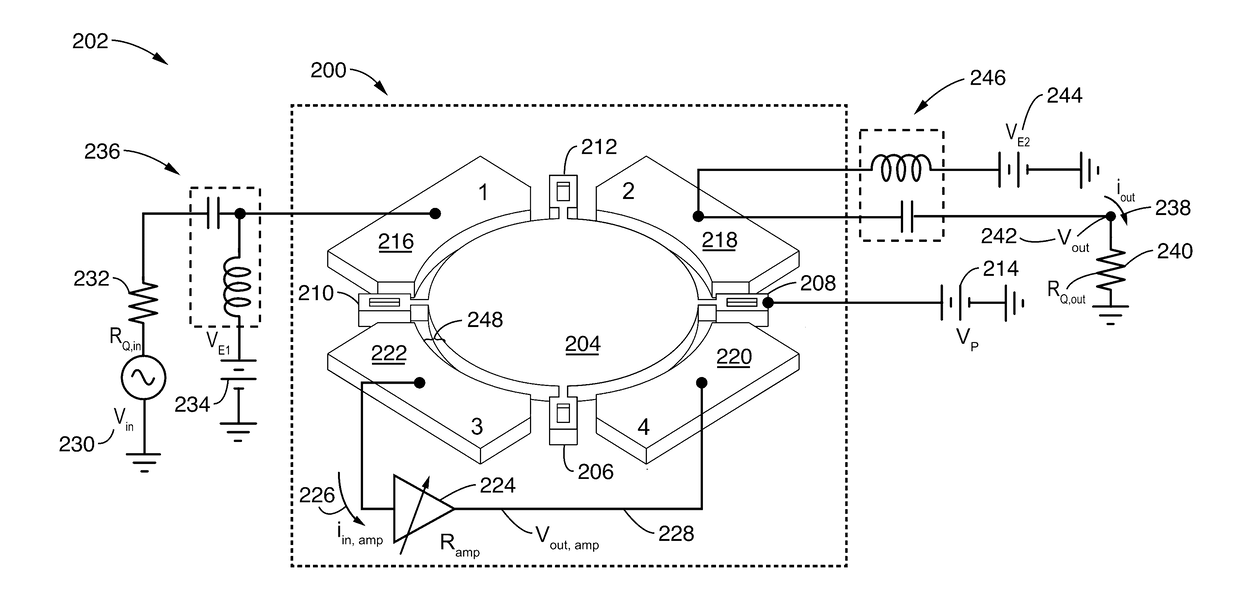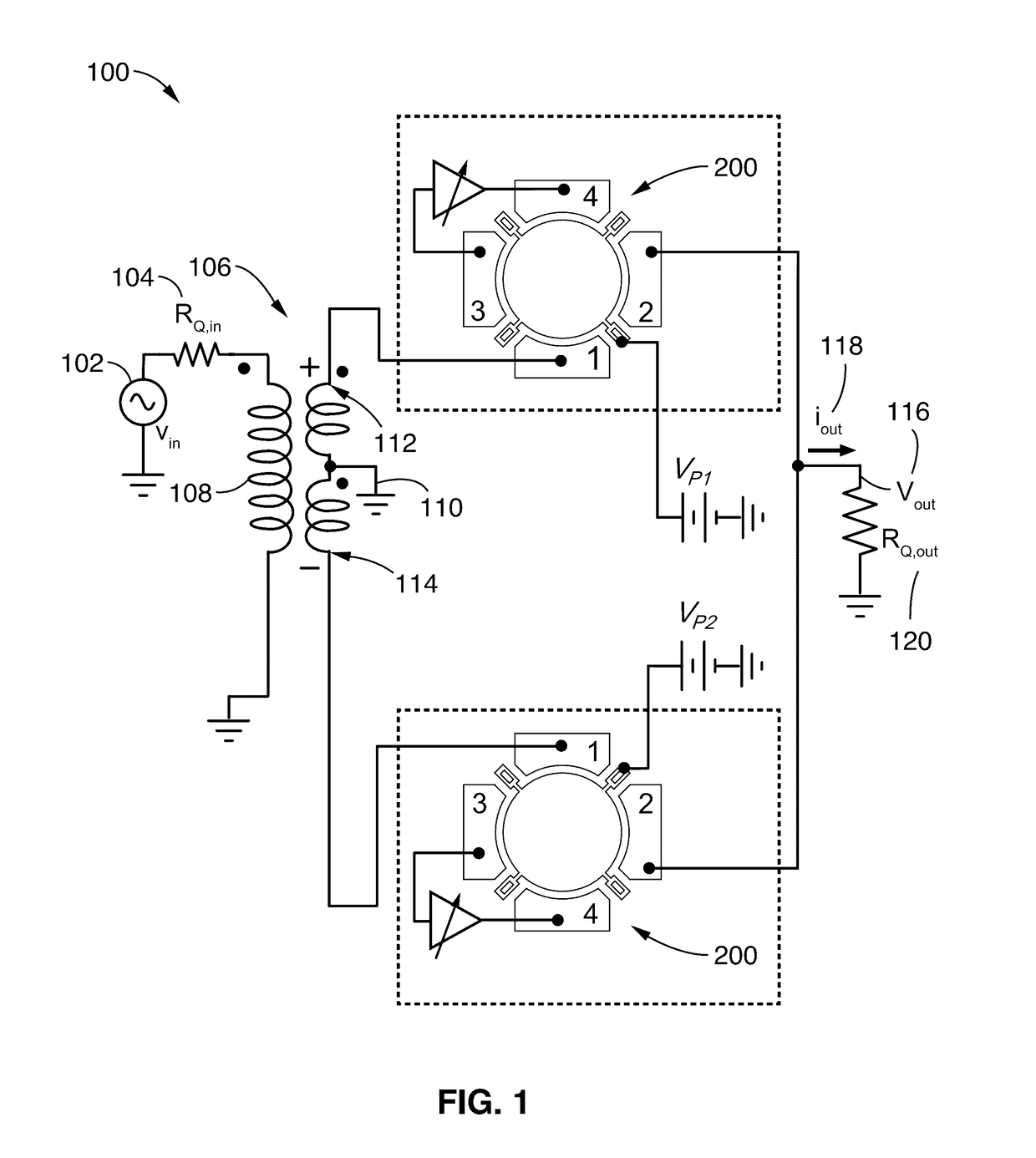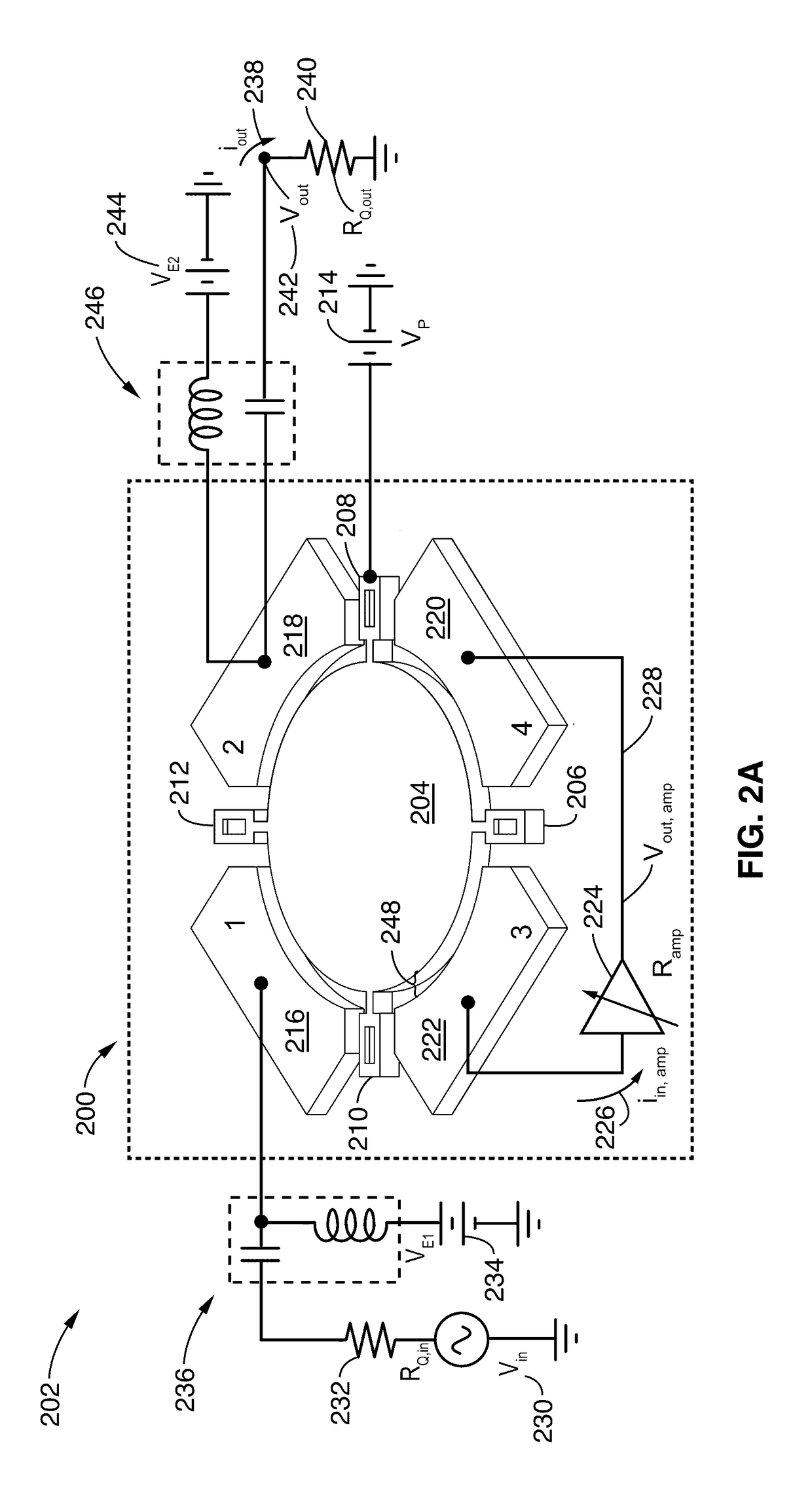Active resonator system with tunable quality factor, frequency, and impedance
- Summary
- Abstract
- Description
- Claims
- Application Information
AI Technical Summary
Benefits of technology
Problems solved by technology
Method used
Image
Examples
Embodiment Construction
I. Introduction
[0041]The increasing role of wireless technology in our daily lives is accompanied by a need for reduced radio power consumption. This will be especially important as wireless devices become ubiquitous, going beyond the smart phones of today to perhaps networks of more than a trillion autonomous sensors of tomorrow—sensors for which no one wants to replace batteries. Among components in a typical radio receiver, the front-end filters play a pivotal role in reducing power consumption. In particular, by removing unwanted blockers before they reach front-end electronics, these filters allow such electronics to operate with lower dynamic range than would otherwise be needed, hence, with lower power consumption.
[0042]From this perspective, the high-Q surface acoustic wave (SAW) and thin film acoustic resonator (FBAR) vibrating mechanical devices that make up today's radio frequency (RF) bandpass filters are already responsible for significant power savings in wireless hand...
PUM
 Login to View More
Login to View More Abstract
Description
Claims
Application Information
 Login to View More
Login to View More - R&D
- Intellectual Property
- Life Sciences
- Materials
- Tech Scout
- Unparalleled Data Quality
- Higher Quality Content
- 60% Fewer Hallucinations
Browse by: Latest US Patents, China's latest patents, Technical Efficacy Thesaurus, Application Domain, Technology Topic, Popular Technical Reports.
© 2025 PatSnap. All rights reserved.Legal|Privacy policy|Modern Slavery Act Transparency Statement|Sitemap|About US| Contact US: help@patsnap.com



